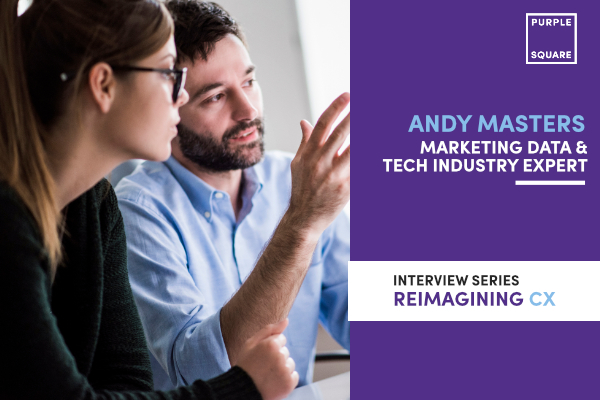Why data skills are essential to achieving GDPR compliance
19 Mar 2018
Data skills are mandatory for today’s brands attempting to build individually personalised customer relationships. These specialist skills are enabling firms to adopt the hottest trends in machine learning and predictive analytics to provide a much more comprehensive understanding of customer behaviours and needs. These skills are also imperative to building relationships and trust, as well as complying with the forthcoming General Data Protection Regulation (GDPR).
However, according to our 2017 research report, around half (40 percent) of brands state that a skills gap is the biggest challenge to improving data management, so organisations need to quickly recruit and retain talented data experts to ensure that they are ready to compete.
Why is there a data skills shortage?
Over the years, dramatic increases in the quantity and velocity of data, coupled with significant advances in technology that provide easier data capture, have enabled organisations to leverage data to transform their understanding of customers and their processes.
Coupled with new methods of analysis and the modelling of data, this has led to a surge in demand for data specialists, with many organisations finding it difficult to attract and retain talented analysts with the right skills. Resource simply outweighs demand, which has created a highly competitive talent acquisition market.
How have brands tried to plug the gap?
Many organisations have hired and trained data specialists to carry out specific functions that are tailored to in-house processes. However, in-house data analysts often exhibit narrower, specialised experience, which can become a challenge when a broader view is needed for multi-faceted implementation, such as is required with GDPR.
To overcome these issues, other organisations have brought in a range of external analysts, data scientists and data management experts to support their existing teams. With this approach, businesses acquire the exact type of data skills as and when they need them, and pay only for the period they require them.
Why do brands need to plug the skills gap now?
Amid growing consumer mistrust and concerns around the safety of personal data from identity theft, cyber attack, hacking or unethical usage, GDPR aims to standardise data privacy laws across industries. GDPR is a game-changer. While brands in the banking and financial services sector are likely to be better equipped for regulation, all brands will find during these processes customer data is exposed to a large number of different people at different stages.
In their eagerness to capture the benefits of data analytics, many organisations have woven consumer and employee data deeply into their internal systems and operational processes – often with insufficient regard for privacy. With GDPR, businesses will have to assess and recalibrate these systems around respecting individuals’ preferences on privacy. Most current systems do not support GDPR requirements. The right to erasure is particularly difficult due to the complexity and breadth of data distribution across databases and backups.
Before the May deadline, brands will also need explicit permission to have and carry on marketing conversations. Databases will need to comprise only individuals who have actively given their permission for brands to engage with them. This will require brands to contact and connect with customers in the way they want them to, or not at all. Businesses need to recruit and retain talented data experts to ensure their brands can engage customers with timely, relevant communications, while being transparent with customers about how their data is being used.
With specialist data skills, brands are better equipped to tackle key components of GDPR, which will help build relationships and customer trust.
Managing permissions
A key element of GDPR compliance is gaining customer permission to use data for specific use cases. However, relationships are not built on compliance alone. Adopting best practice data, channel and brand management strategies to drive positive engagement is one of the biggest opportunities right now for firms. Permission becomes the single most important piece of data for firms aspiring to build meaningful, long term and rewarding relationships.
Brands need to pull data together in one place to gain a single customer view. Once they have done this, data insight can be used to develop channel and brand management strategies that focus, crucially, on opportunities to build meaningful relationships that work on terms appropriate to the customer.
Building more personal relationships
Not only that, compliance with GDPR will also ensure a better start to the customer journey as individuals will be parting with their data with more awareness of how it will be used. Those who do not want to engage will not provide their data. So, no wasted time chasing, and no resentment before you even begin communicating.
Regulatory change on the scale of the GDPR and moving to a permission-based marketing approach implies significant business, process and technology changes. It is necessary, for example, for firms to carry out a review of their entire data environment to assess whether customer and prospect databases are compliant.
Rebuilding trust
Inconsistent laws, misappropriated permissions and – sadly – a fair amount of bad behaviour have meant that trust has been on a slippery slope between consumers and firms. So much so that consumer mistrust has become a somewhat ubiquitous factor that most marketers must now overcome.
Though it is not a silver bullet, GDPR provides a catalyst for positive change. It will arrive at an optimum time for marketers to take charge, connect disconnected journeys and experiences and begin a revolution in data-culture to demonstrate new brand value.
What should organisations do now?
The countdown to GDPR implementation has now started. When GDPR is fully implemented in May this year, in-house teams must be ready to put into place a data, consumer and legal framework which ensures full compliance. A data protection officer (or an individual acting as such) must be appointed to oversee the implementation of all the key GDPR steps. This individual must have access to a board-level sponsor to ensure internal processes do not get in the way of these critical tasks. This is not just good governance, it is a stated requirement of the new regulation.
At the very minimum, this individual will likely need a profound understanding of all the in-house data structures, including data audit skills, analytical skills, a level of IT understanding, an appreciation of consumer data marketing (including all data capture channels) and a good understanding of the new regulation. GDPR is not going to be an easy ride, but brands with the right skills and expertise in place will reap the rewards of having more meaningful relationships with customers.
For more GDPR news and views, visit gdpr.jaywing.com.
John McDermott is a Chartered Marketer and Head of CRM at Jaywing.
* The 2017 data-driven marketing report, Jaywing research





Please login to comment.
Comments